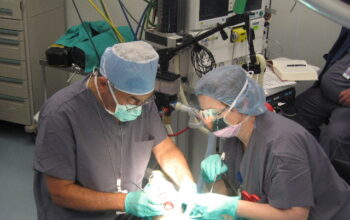In the realm of health and wellness, the intricate interplay between the mind and body has been a subject of fascination for centuries. The mind-body connection refers to the complex interactions between our thoughts, emotions, beliefs, and physical well-being. One striking facet of this connection is the profound impact that mental health can have on pain relief. The concept might seem intuitive at first glance—after all, who hasn’t experienced the sensation of physical pain intensifying during moments of stress or anxiety? However, the science behind this connection runs deep, highlighting the powerful ways in which our mental state influences our ability to manage and alleviate pain.
Unraveling the Mind-Body Connection
To truly understand the mind-body connection’s significance in pain relief, we must delve into the biological and psychological mechanisms that underpin this relationship. Researchers have long known that emotions and thoughts can trigger a cascade of physical responses. When we’re stressed or anxious, our bodies release stress hormones like cortisol, which can sensitize us to pain. This is often referred to as the “fight or flight” response—a survival mechanism designed to heighten our sensitivity to potential threats. However, in modern times, this response can sometimes backfire, leading to increased pain perception and reduced pain tolerance.
Furthermore, chronic stress can perpetuate a cycle of pain. For instance, someone experiencing ongoing stress might develop muscle tension, which, in turn, exacerbates their pain. This bidirectional relationship between mental distress and physical discomfort underscores the importance of addressing both aspects to achieve effective pain relief.
The Gate Control Theory of Pain
One of the foundational theories explaining the mind-body connection’s role in pain relief is the Gate Control Theory of Pain, proposed by psychologists Ronald Melzack and Patrick Wall in 1965. This theory suggests that the brain has a “gate” mechanism that can either facilitate or inhibit the perception of pain signals. Emotional and cognitive factors, such as attention and mood, can influence the opening or closing of this gate. Positive emotions and distractions can act as a counterbalance to pain signals, effectively closing the gate and reducing the perception of pain. On the other hand, negative emotions and anxiety can amplify pain by widening the gate.
This theory highlights the significance of our mental state in pain management. It implies that strategies aimed at redirecting attention, promoting relaxation, and cultivating positive emotions can serve as valuable tools for individuals seeking relief from chronic pain.
The Placebo and Nocebo Effects
The placebo effect is a testament to the mind’s astounding capacity to influence the body. It occurs when a person experiences symptom relief after receiving a treatment that has no therapeutic value, solely because they believe it will work. This phenomenon demonstrates the profound impact of psychological factors on physical sensations. In fact, studies have shown that the brain releases natural pain-relieving chemicals, such as endorphins, in response to positive beliefs and expectations.
Conversely, the nocebo effect highlights how negative beliefs and expectations can worsen pain. If someone believes that a certain treatment will be ineffective or cause discomfort, their brain might release stress hormones, intensifying their perception of pain.
Mind-Body Interventions for Pain Relief
Recognizing the mind-body connection’s potential, medical professionals and researchers have explored various mind-body interventions to complement traditional pain management approaches. These interventions encompass a wide range of techniques, including mindfulness meditation, biofeedback, yoga, and cognitive-behavioral therapy.
Mindfulness meditation, for instance, encourages individuals to focus on the present moment without judgment. This practice can help cultivate an awareness of thoughts, emotions, and bodily sensations, thereby reducing stress and promoting relaxation. Studies have demonstrated its effectiveness in diminishing chronic pain by altering the brain’s pain-processing mechanisms.

Biofeedback involves using technology to provide real-time information about physiological processes, such as heart rate and muscle tension. By learning to control these functions, individuals can gain mastery over their physical responses and, consequently, alleviate pain.
The Road Ahead
The mind-body connection’s role in pain relief underscores the importance of adopting a holistic approach to health. Acknowledging that mental well-being and physical health are interconnected can lead to more comprehensive and effective treatments for pain management. Moreover, as research continues to unveil the intricacies of this relationship, innovative interventions that leverage the mind’s power to modulate pain perception will likely emerge.
In our fast-paced world, where stress and anxiety have become commonplace, harnessing the mind-body connection’s potential is more crucial than ever. By nurturing our mental health, practicing mindfulness, and incorporating mind-body techniques into our lives, we can empower ourselves to take an active role in managing pain and optimizing overall well-being. Feel free to visit their page to find more great information about how mental health impacts pain relief.
In conclusion, the mind-body connection serves as a bridge between our thoughts and physical sensations. It’s a reminder that we are not passive recipients of pain but active participants in how we experience and manage it. As we continue to explore the intricate relationship between mental health and pain relief, we open doors to a future where comprehensive healing embraces both body and mind.





